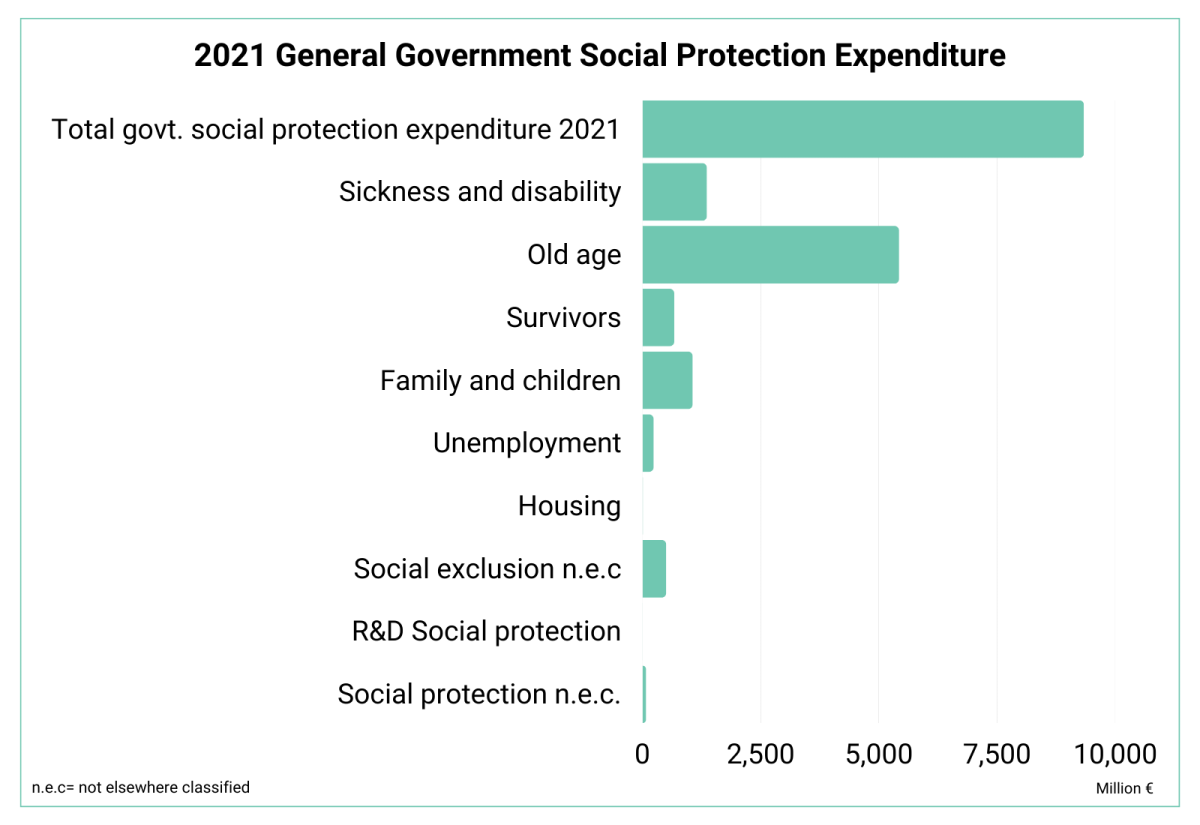RECOMMENDATION
Improving the situation of foster parents and promoting foster care is vital for the well-being of children in need of stable and loving homes.
SOCIAL SERVICES POLICY AND LEGAL FRAMEWORK
There is no social services legislation; instead, the Social Assistance Act determines that social welfare involves preventing and solving the social problems of individuals, families and communities.
Article 2 of the Social Assistance Act determines that the state ensures the functioning of social welfare organisations, creates the conditions for the development of social welfare activities, supports and encourages the development of self-help charities, different types of independent living for people with disabilities and other forms of voluntary work in the field of social welfare. Furthermore, Article 2 determines that the social welfare programme is adopted by the National Assembly of Slovenia and regulates the strategy of social assistance development, defines the priority areas of social assistance, addresses the specific needs and opportunities of each area, and determines the network of public services provided by the state.
The Resolution on the 2022-2030 National Social Assistance Programme was adopted by the National Assembly of Slovenia in 2022. It recognises the obligation of the State to describe social services in a strategic plan. Based on the resolution, National Action Plans are adopted for shorter periods within this 8-year timeline. The key goals of the Plans are to reduce the risk of poverty and increase social inclusion, improve the availability and variety of social services, ensure the accessibility and reach of social services and programmes, and lastly, establish the conditions for social welfare organisations to operate, and to strengthen social care development and quality.
Main Agencies
Social welfare services are predominately delivered by the Ministry of Labour, Family, Social Affairs and Equal Opportunities (MDDSZ). The recently created Ministry of Solidarity-Based Future (MSP) is responsible for long-term care services, their accessibility and deinstitutionalisation.
The Association of Centres for Social Work of Slovenia (ACWS) puts together a catalogue of public administrations, legal responsibilities and services carried out by the Centres. Furthermore, the Association determines the standards and norms for carrying out individual duties and offers professional support and organisational assistance to the Centres. Rules on standards on social assistance are adopted in legislation by the Ministry of Labour, Family, Social Affairs and Equal Opportunities.
The Centre’s responsibilities include child protection, foster care, adoption, guardianship for children and adults, preventing family violence, protection of people with disabilities, working with people with mental health problems, and managing social benefits.
The Association of Social Institutions of Slovenia (SSZS) is an association that connects providers of residential care for older persons aged 65+ and providers of residential care for other populations.
SOCIAL SERVICES INVESTMENT
According to the most recent data, the highest proportion of government expenditure was dedicated in 2021 to social protection, comprising 17.9% of GDP, with health expenditures following at 8.1% of GDP.

SOCIAL SERVICES COVERAGE
Long-Term Care
Residential Care
In 2023, of 2,110,547 people living in Slovenia, 449,547 are aged 65+ - 21.4% of the population.
According to SSZS, there are 17,757 beds for people aged 65+ in residential care, but an estimated 1,500 to 2,000 people are waiting for residential care. In 2021, there were 7,616 users of home care and 1,150 persons waiting for home care.
3,432 older people, or 19.33% of those in residential care for people aged 65+, receive at least some financial support from the municipality.
Day Centres
There are 753 places available in day centres for older people.
Home Care
Each person who is entitled to receive home care can receive up to 20 hours per week.
Support Services for People with Disabilities
According to the Action Programme for Persons with Disabilities 2022-2030, there are approximately 170,000 persons with disabilities and physical impairments.
In 2021, there were 289 people with an official status of a person with a disability who received home care. There are no available data for 2022 and 2023.
In 2021, there were 2,156 beds in residential care for adults with special needs. There are 174 available places in all-day centres (16 or 24 hours) and 228 available places in daycare (10 hours, 5 days per week).
Minimum Income Schemes
In 2022, 41.9% of 251,000 people who lived on incomes below the poverty line, or 105,179 people, were entitled to social assistance and income support.
According to 2021 data from the Statistical Office, an average of €355 per month per beneficiary was granted for social assistance, and this accounted for 38.7% of the average monthly household income.
Regarding income support, an average of €165 per month was granted per beneficiary, which represented 18% of the average monthly income per household member. It should be underlined that income per household member is household income divided by the number of members in the household.
Child Protection Services
According to 2023 data, 547 children with emotional and behavioural disorders are in residential care. There are currently 769 children in foster care and 550 foster parents, whilst the average number of children placed with one foster parent is 1.7.
Services for Homeless People
According to 2022 data, there are 352 accommodation places for homeless persons or 16.7 per 100,000 inhabitants.
Regarding housing support, those who do not have sufficient funds to cover the cost of rent may be eligible for a rent subsidy, the conditions of which are regulated through the acts on public funds, social assistance payments and housing.

